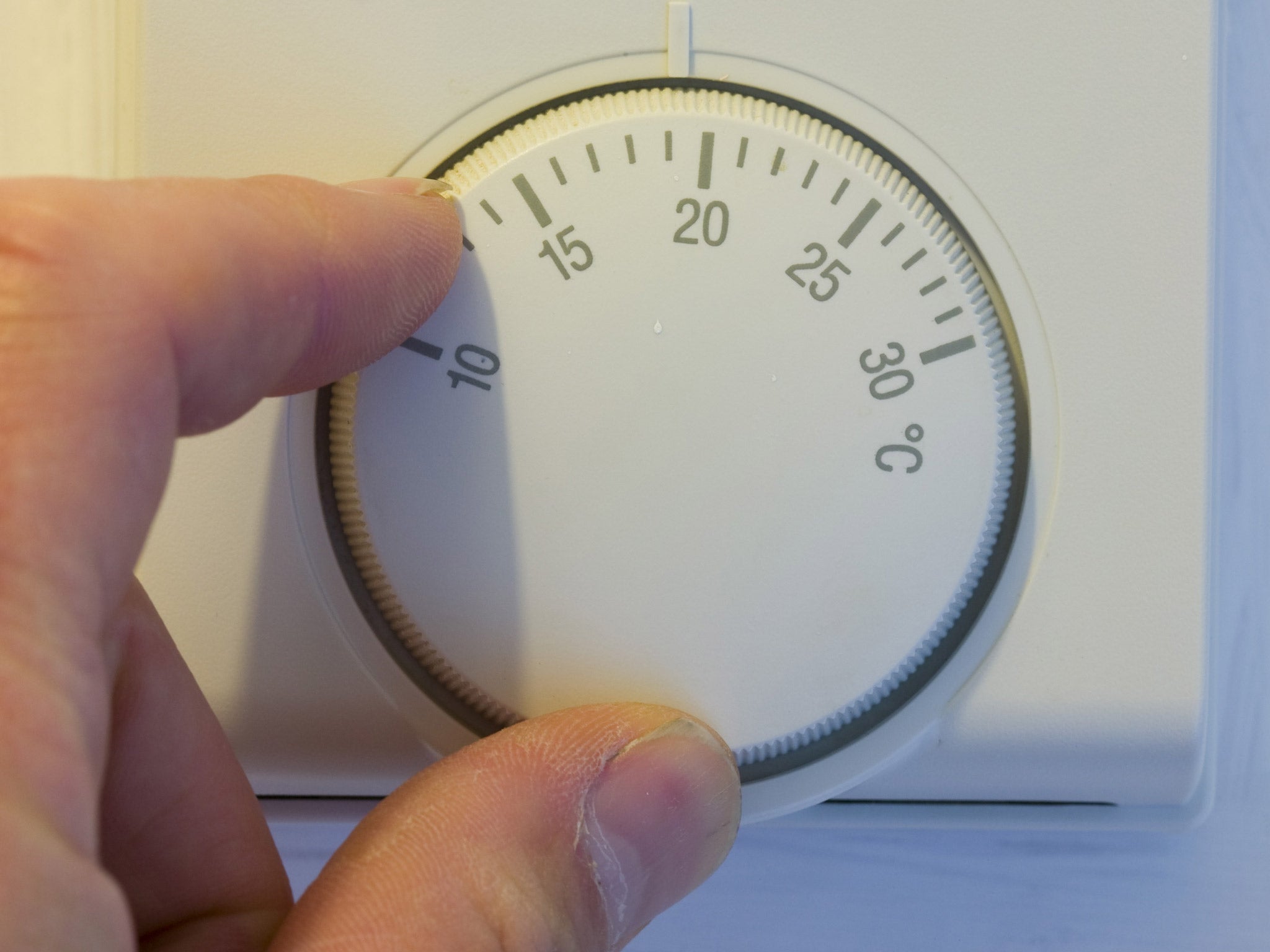Some like it hot: Survey shows that British homeowners bask in temperatures warmer than a summer's day
More than a third of people keep their thermostat at 25C and one in 20 people relax in 30C heat

Your support helps us to tell the story
From reproductive rights to climate change to Big Tech, The Independent is on the ground when the story is developing. Whether it's investigating the financials of Elon Musk's pro-Trump PAC or producing our latest documentary, 'The A Word', which shines a light on the American women fighting for reproductive rights, we know how important it is to parse out the facts from the messaging.
At such a critical moment in US history, we need reporters on the ground. Your donation allows us to keep sending journalists to speak to both sides of the story.
The Independent is trusted by Americans across the entire political spectrum. And unlike many other quality news outlets, we choose not to lock Americans out of our reporting and analysis with paywalls. We believe quality journalism should be available to everyone, paid for by those who can afford it.
Your support makes all the difference.British homes are far warmer than they used to be with some people basking in temperatures warmer than a summer's day, according to new research.
A Government-backed study for the UK Housing Energy Fact File found that the average property is kept at around 17.7C during the winter months - a significant rise on 13.7C in the 1970s.
However a poll commissioned by emergency repair firm HomeServe put the average temperature even higher, at 23C, warmer than a typical summer's day.
More than a third of people kept their thermostat at 25C and one in 20 people relaxed in 30C heat. Some 18 per cent said they kept their heating on day and night.
The Government-based study, by Cambridge Architectural Research, Eclipse Research Consultants and Cambridge Energy, said greater insulation, new building regulations and improvements in boilers had helped keep heat in modern homes.
With a small decrease in those deemed to be in fuel poverty during the last decade, the report examined how those in 1970's chilliest living rooms were quite used to reaching for the woolly jumpers and thermal insulation when the mercury dropped.
The report, commissioned by the Department of Energy and Climate Change, said: “Much of the UK's housing was built before the links between energy use and climate change were understood. Much of it was also built when there were very different expectations of thermal comfort.
“To put it simply, most families in 1970 lived in homes that would be cold by modern standards in winter - as cool as 12C on average. There may have been ice on the insides of the windows, and nearly everyone accepted the need to wear thick clothes at home in winter."
The report said few homes had central heating four decades ago, while many homes in the 21st century are stacked with energy-guzzling appliances such as large televisions, computers and consoles.
Yet average household energy usage has declined by 18 per cent since 1970 - prompted by the decrease in the number of people living in each residence.
However, the growth in the number of households more than offsets this efficiency improvement, and overall energy use in homes has increased by 17 per cent.
And despite a culture of having to watch the pennies as the energy firms ratchet up their prices, the report states modern households are not typically aware of how much gas they use, either in absolute terms or in relation to others.
The study also shows carbon dioxide emissions from housing have fallen more than a fifth since 1990. This was despite increases in the number of homes and changing expectations about energy use in the home.
The researchers said: “Paying by direct debit, fluctuating energy prices, variations in how cold the winter is, and changing household circumstances - all of these appear to cloud people's understanding of how much energy they use."
Join our commenting forum
Join thought-provoking conversations, follow other Independent readers and see their replies
Comments